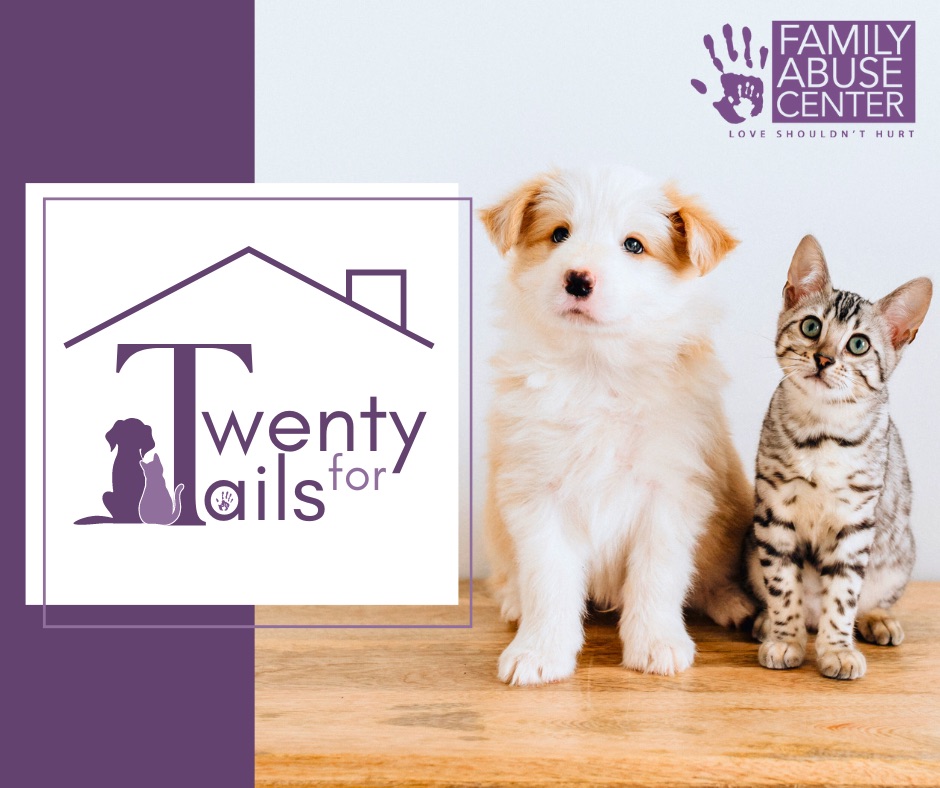by: Debrah Wright
As Waco prepares for its municipal elections, attention turns to the candidates and the diverse issues they aim to tackle. The mayoral race, in particular, has garnered interest, with candidates offering varied approaches to address the city’s challenges and opportunities.
**Mark Your Calendars: Election Details**
The general election for the City of Waco Mayor and Council Members for Districts I and III is scheduled for Saturday, May 4, 2024. Early voting will be open from April 22 through April 30, 2024, providing flexibility for residents to participate. Following the election, those elected will be sworn in at a Special Meeting on May 14, 2024, at 6 p.m.
**Accessible Voting Locations and Times:**
McLennan County has designated multiple early voting sites, including the Records Building, community centers, and libraries, ensuring accessibility for all residents. The early voting schedule offers extended hours, accommodating diverse schedules and commitments. Below are the early voting locations and times:
– McLennan County Records Building: 214 N 4th Street, Suite 300
– Robinson Community Center: 106 W. Lyndale Avenue
– Waco Multi-Purpose Community Center: 1020 Elm Avenue
– West Waco Library: 5301 Bosque Blvd
– Hewitt City Hall: 200 Patriot Court
Early voting times are as follows:
– Monday, April 22 to Friday, April 26: 8 a.m. to 5 p.m. each day
– Saturday, April 27: 7 a.m. to 7 p.m.
– Sunday, April 28: 1 to 6 p.m.
– Monday, April 29 to Tuesday, April 30: 7 a.m. to 7 p.m. each day
The mayoral race features three candidates:
Three candidates are vying to become the next mayor of Waco, to be decided in May. Jim Holmes, the District 5 council member and mayor pro tem; Aubrey Robertson, an attorney and former Democratic candidate for McLennan County district attorney; and Eric Brown, a pastor and activist, have each filed for the seat. The winner of the May 4 election will succeed Dillon Meek.
**Jim Holmes:** Jim Holmes has served on the Waco City Council since 2016. With 35 years of financial management experience, including roles as COO/EVP of FirstCity Financial Corp & SVP of FNB of Central Texas, he brings a wealth of expertise. Currently, he serves as President of HOTCOG, Chairman of Waco MPO, & Board Director for Waco Sports Commission & Cameron Park Zoo. Jim is a graduate of Creighton University and attended Baylor School of Law. Bringing a background in public service, Holmes emphasizes infrastructure investment and economic development as key priorities for Waco’s future. (https://www.jimholmeswaco.org/)
**Aubrey Robertson:** Aubrey Robertson is an attorney with a background in Political Science and Slavic and Eastern European Studies. Transitioning from aspiring to draft constitutions for former Soviet countries to focusing on the criminal justice system, he gained experience in mock trials and criminal law clinics. Aubrey’s extensive experience includes pro bono work, internships, and roles as both a prosecutor and defense attorney. Currently serving as the District Court Felony Chief at the Law Offices of Vic Feazell, P.C., he prioritizes keeping clients informed and confident throughout legal proceedings. With a focus on economic revitalization and community empowerment, Robertson aims to foster small business growth and expand access to affordable housing, known for his stance on Public safety. (https://www.aubreyforda.com/)
**Eric Brown:** Eric Brown brings a dedication to public service and community advocacy. With a background in business administration, he focuses on economic development, education, affordable housing, public safety, environmental sustainability, and social equity. Eric aims to create a brighter future for all residents through innovative solutions and active listening to community voices. Advocating for grassroots initiatives and sustainable development, Brown prioritizes environmental stewardship, social equity, and inclusive governance. (https://www.ericforwaco.com/)
In addition to the mayoral race, other important contests include:
– Waco Independent School District Board of Trustees At-Large, Place 6: Keith Guillory and Lauren Caldwell offer their visions for the future of education in Waco.
– McLennan Central Appraisal District Board Member, Place 2: David R. Schleicher and Perry Felton vie for this position, focusing on fair property assessments.
– McLennan Central Appraisal District Board Member, Place 3: William “Bill” W. Vernon, Jr., Linda Hatchel, and Dennis DeGraff compete for this seat, each with their own ideas for effective property valuation practices.
**Get Involved: Exercise Your Right to Vote**
As the election approaches, it’s crucial for Waco residents to educate themselves on the candidates and their platforms. Whether casting their ballots during early voting or on Election Day, every vote counts in shaping the future of the city. For more information on voting locations and ballots, residents can visit mclennan.gov/elections and make their voices heard in this pivotal election.
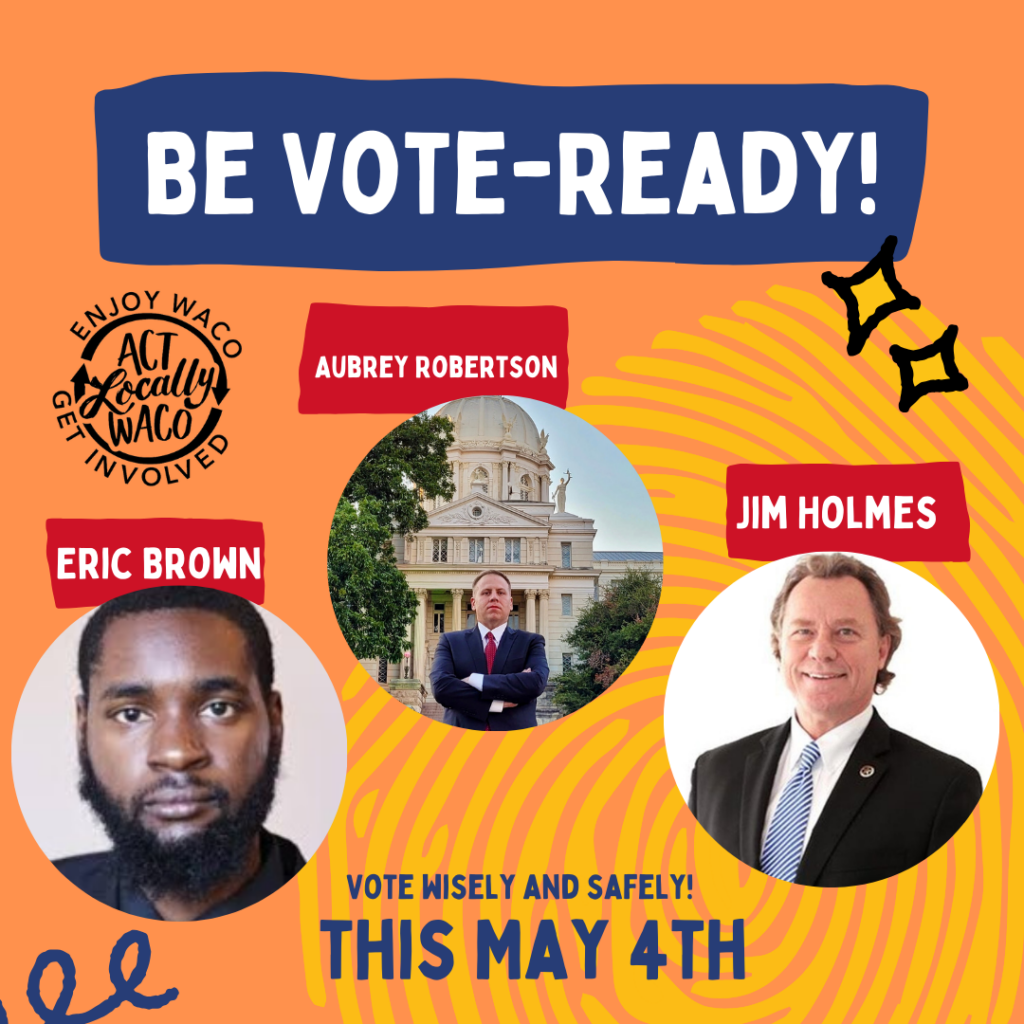
by: Debrah Wright
Waco, Texas, known for its vibrant community and historic charm, has recently experienced a wave of small businesses closing their doors, leaving locals saddened and concerned about the economic impact on the city. It’s disheartening to witness these closures, prompting a crucial moment of reflection to explore the closures of iconic establishments—Sironia, Bicycle World, Fuzzy’s and O-I—and delve into the broader implications for the local business landscape. This serves as a reminder that the success of our small businesses hinges on the support of our community.
Sironia: A 20-Year Legacy Comes to an End
After more than two decades of serving the Waco community, Sironia, a beloved local boutique, recently announced its closure. This charming store, known for its unique gifts, home decor, and boutique clothing, had become a staple for residents and visitors alike.
Sironia’s closure raises questions about the challenges small businesses face in the ever-evolving retail landscape. Factors such as increased online shopping, rising operating costs, and changing consumer preferences contribute to the struggles many local businesses encounter.
Bicycle World’s Abrupt Exit from Downtown Waco
In a surprising turn of events, Bicycle World, a longstanding fixture in downtown Waco, closed its doors abruptly. This departure left cycling enthusiasts and locals puzzled, as the shop had been a go-to destination for bike sales, repairs, and community events.
The sudden closure of Bicycle World highlights the unpredictable nature of the business environment. Economic downturns, unforeseen challenges, or shifts in consumer behavior can force businesses to make tough decisions quickly. It also underscores the importance of adaptability and resilience for small businesses in today’s dynamic market.
Mike Copeland’s Insights: Fuzzy’s Future and O-I Closure Fallout
Mike Copeland’s recent column sheds light on various business developments in Waco, including the closure of O-I Glass, one of the most prominent glass bottle manufacturers around the globe, is shutting down its Waco facility after 79 years of service. This impending closure caused a lay off of an approximate 300 employees. Owens-Illinois Glass, a global glass bottle manufacturing leader, is closing its Waco facility. Copeland explores the potential ripple effects of O-I’s closure on the local economy, touching on issues such as job loss and the impact on nearby businesses.
This article also shares that Both Waco-area Fuzzy’s Taco Shop restaurants, including the location in Downtown and Hewitt Drive have closed. Both area locations have now closed, including the Baylor student frequented on University Parks Drive that often seemed so lively, with patrons spilling onto the patio.
The interconnectedness of local businesses becomes apparent in the wake of closures like Fuzzy’s and now Bicycle World. Small businesses often rely on each other for support and foot traffic, creating a delicate ecosystem. Understanding and addressing the challenges faced by individual businesses can be crucial in preserving the overall health of the local economy.
Looking Forward: Challenges and Opportunities
While the closures of Sironia, Bicycle World, Fuzzy’s and O-I may paint a challenging picture for Waco’s small business community, it’s essential to recognize the opportunities for growth and revitalization. Initiatives such as community support, strategic partnerships, and adapting to changing consumer preferences can play a vital role in fostering a resilient local business landscape.
Small businesses are the heartbeat of our community, contributing directly to our local economy. They are more than just storefronts; they are the livelihoods of the people they employ and the families they sustain. It becomes particularly challenging when a multitude of factors stack against our small business owners.
As Waco navigates these shifts, community members, local leaders, and business owners must collaborate to address the underlying issues and work towards creating an environment where small businesses can thrive. The stories serve as reminders of the resilience required to weather the storms of the business world, ultimately shaping the future of Waco’s entrepreneurial spirit.
Let’s challenge the narrative and be the change we want to see in Waco. Small businesses are the backbone of our community, giving back in numerous ways. Now, more than ever, it’s crucial to rally behind our small business leaders. Be the Waco you envision, and let’s show our support.
To help protect your vehicle, the U.S. Department of Transportation’s National Highway Traffic Safety Administration (NHTSA) is teaming up with the National Insurance Crime Bureau to provide information about vehicle security. Review these statistics on vehicle theft in the United States and NHTSA’s tips on keeping your vehicle safe.
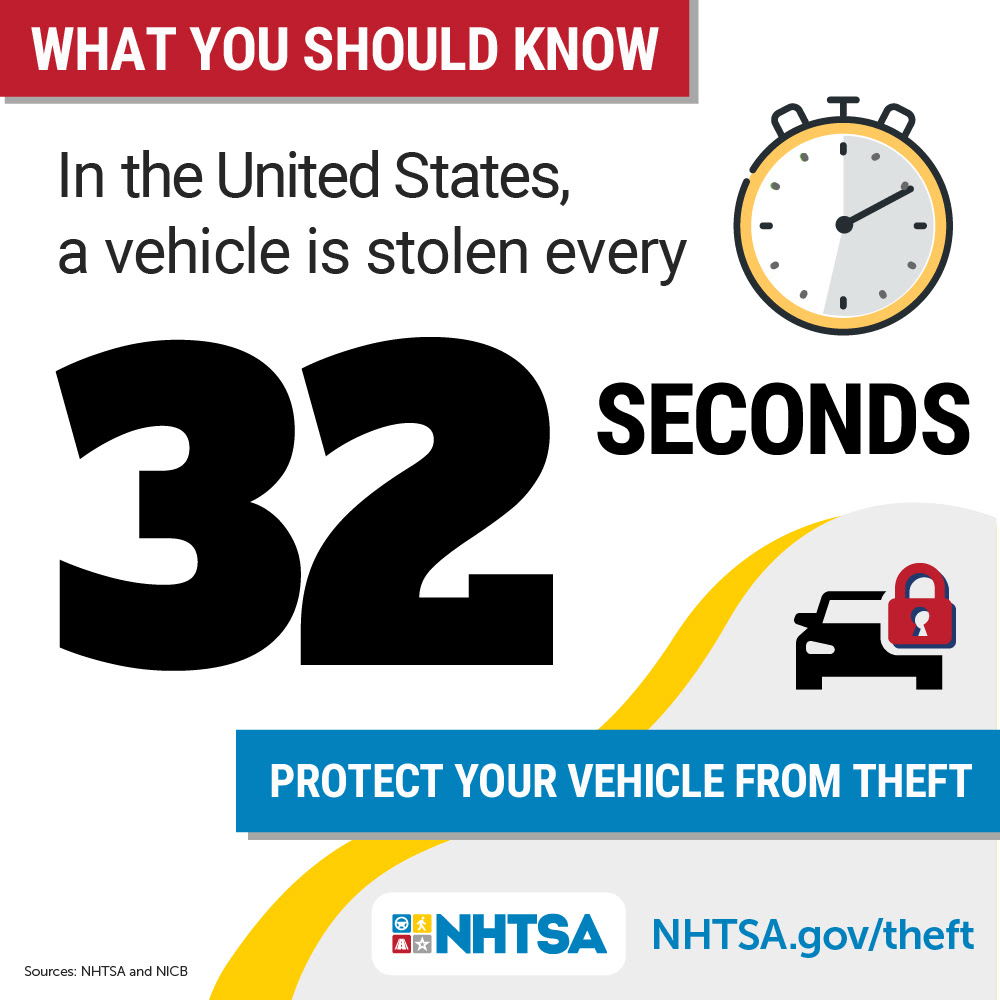
Vehicle Theft Facts and Figures
· More than 1,000,000 motor vehicles were stolen in 2022, with more than 250,000 reported to law enforcement during the fourth quarter alone. This is a 25% increase in vehicle theft totals over the past few years.
· Historically, passenger cars made up approximately 74% of all stolen motor vehicles.
· A motor vehicle is stolen every 32 seconds in the United States.
· In 2022, thieves stole more than $8 billion in motor vehicle value.
How to Prevent Motor Vehicle Theft
· Park in well-lit areas.
· Close and lock all windows and doors when you park.
· Hide valuables out of sight, such as in the glove box or trunk.
· Do not leave your keys in your vehicle.
· Do not leave the area while your vehicle is running.
· Some vehicles come equipped with an alarm and anti-theft system, but what if yours does not? Consider purchasing extra layers of protection for your vehicle if your manufacturer does not provide it. This could be something like an anti-theft system, which can be easily purchased online or in a store.
By Brian Shavers
Grassroots Community Development has opened enrollment for a new phase of our highly successful roof repair program to help low-income families. In the rainy months we receive calls from families with terrible roof problems. This eighth phase of our program hopes to address some of that need.
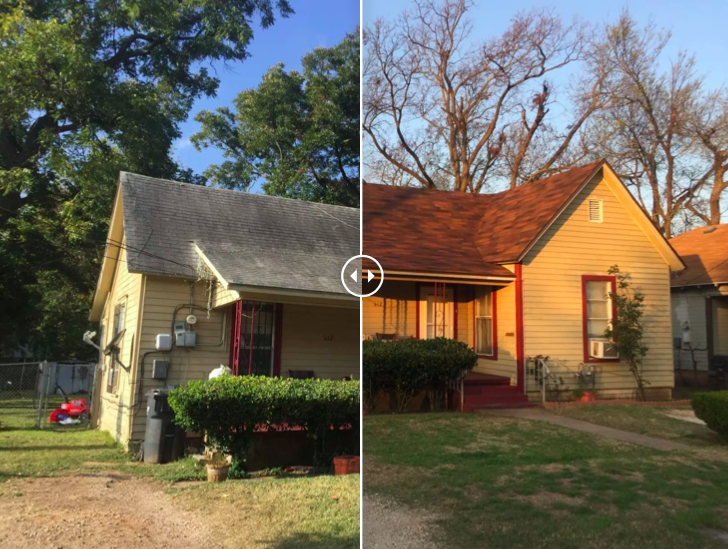
Grassroots is now finishing 175 roof repairs for families from our earlier phase, and Phase VIII continues these efforts. The services provided by Grassroots are made possible in part through a grant from the City of Waco. The program is free to low-income families that live in the city.
We have enough funds to repair about 22 roofs. We began accepting enrollment in the program Sept. 8 and will continue through Nov. 2. We will then begin accessing homes in December.
The Roof Repair Program provides asphalt roof replacement to low-income Waco homeowners to correct problems that pose an immediate threat to the health and/or safety of occupants. To qualify, the following are required:
- The homeowner must occupy the residence where the repairs are to be made.
- Applicant must own the home as your primary residence.
- Property taxes must be current.
- The home must be within the city limits of City of Waco.
- The amount of your annual household income must fall below 80% of City of Waco’s Area Median Family Income. (See included HUD Income Limits on page 2.)
- The repair must fall under the guidelines of the Roof Repair Program. Required documentation as proof of total household income:
- Copy of Driver’s License or picture ID for all household members age 18 and older.
- Copy of Social Security cards for all household members.
- If you receive retirement and/or Social Security income, we need copies of the most recent
award letters, matching the amounts deposited into your bank account. - If you receive disability income, we need a copy of the most recent award letter, matching the amount deposited into your bank account.
- If you file taxes, we need a copy of the last two years of W-2 forms and certified matching tax returns with all schedules attached from the IRS.
- If you are/were employed this year, we need copies of the last two months of pay stubs. Pay stubs must include gross and net pay.
- Copies of the last two months of all checking/savings account statements, with all pages. Bank statements only – a printout of statement activity is not sufficient. If you do not have them, please request them from your bank.
Applications are available at our office, 1624 Colcord, Waco, TX 76707, or via our website, GrassrootsWaco.org. I can also email you an application; contact me at [email protected].
Grassroots Community Development was formed in 2001. Our mission is to create a brighter future for children, neighbors, and communities. Our mindset is that cultivating healthy neighborhoods is more than just building attractive and affordable homes. Community members must work alongside each other to create sustainable change. Building intentional and authentic relationships with neighbors is at the heart of what Grassroots does.
The team at Grassroots aims to bring neighbors together to work towards community driven change. Children are served through community-supported reading clubs at elementary schools. Neighbors are served through leadership development training classes, and free education and counseling to prepare families to become homeowners.
Communities are served through roof and external home repair programs for the disabled and elderly, building new homes and community enhancement projects.
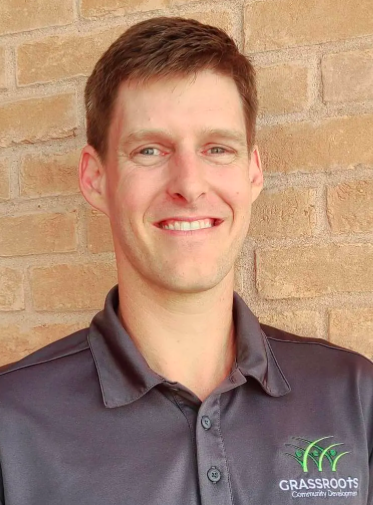
Brian Shavers is projects manager with Grassroots Community Development.
by Alexis Christensen
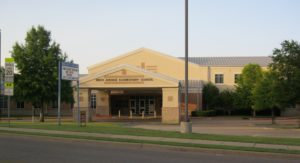 I have the privilege to work with three elementary schools within Waco ISD. They each have their unique strengths and challenges. Today though, I’m highlighting one campus in particular, West Avenue Elementary, located in the heart of North Waco on 15th Street.
I have the privilege to work with three elementary schools within Waco ISD. They each have their unique strengths and challenges. Today though, I’m highlighting one campus in particular, West Avenue Elementary, located in the heart of North Waco on 15th Street.
Waco Community Development began partnering with West Avenue in 2007. We started simply by asking people questions about their dreams and visions for their neighborhood and actively listened to their responses. Out of those conversations, our Family Engagement Program began. Today, when I ask people to describe what North Waco and West Avenue were like back then, I get responses like, “tore up” and “lots of prostitution and drug dealers” and “couldn’t see the good because of the bad.” When you looked at the neighborhood by the numbers during that time, it’s easy to see why people described their neighborhood like that. In 2009, there were 22 vacant retail/business spaces, 190 vacant residential lots, a poverty rate of 43%, and only 35% of residents were homeowners (NRS, 2009 & Census Bureau, 2000).
Yet, since the 2007-2008 school year, West Avenue has been rated by the Texas Education Agency (TEA) as Recognized, Academically Acceptable and Met Standard. And more recently, an assessment conducted by Waco ISD monitoring children’s Pre-Kindergarten readiness showed that West Avenue students were among the most ready to learn among their peers (CLI Engage Assessment). I believe it is worthwhile to take a deeper look at a few factors that helped lay the foundation for West Avenue’s success.
- In its fourteen year history, West Avenue has had 2 principals.
Andreia Foster was the first principal when the campus opened in 2002. Her “open door policy” allowed Waco Community Development and other organizations to work with students and families. Ms. Foster remained principal until 2014. Her twelve year tenure at a single campus created stability not only for families, but for the teaching staff as well.
Sheree Goodman, who taught at West Avenue for 10 years, agrees: “Low turnover [among staff] is connected to academic success, but we were more than co-workers, we became a family… a network was established. The staff was family-oriented and all stakeholders were included in every process. We always tried to do what was best for the kids; we truly believed in the students,” she said.
This legacy lives on through West Avenue’s “new” principal, Joseph Alexander, who just finished his second school year. Mr. Alexander’s motto is “No child is left behind at West Avenue.” This is demonstrated through his vigor and big dreams for his campus. He stated, “I want West Avenue to be a Blue Ribbon campus, a model for the State of Texas. Our students are the best in the state. We will do what other people say we can’t do with children from poverty. We believe that children can learn and will learn if given opportunity to be successful.”
These beliefs and core values both inspire and motivate students and teachers to be the best.
- Residents and community organizations are committed for the long haul.
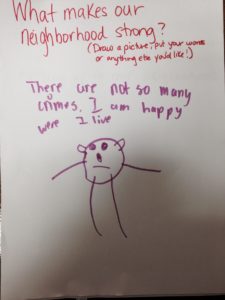 North Waco residents are not shy about their love for their neighborhood. An abundance of committed and trusted organizations and people live, work, worship and play in the neighborhood on a consistent basis. I would be remiss to try and name them all here; however, I’ve observed two main characteristics which distinguish these groups from others: their sustained commitment to learning from varying experiences and perspectives, and their deep held belief that trust is not a right due to them because of good intentions, but trust is a privilege to be earned. These practices are not cultivated overnight but develop with time.
North Waco residents are not shy about their love for their neighborhood. An abundance of committed and trusted organizations and people live, work, worship and play in the neighborhood on a consistent basis. I would be remiss to try and name them all here; however, I’ve observed two main characteristics which distinguish these groups from others: their sustained commitment to learning from varying experiences and perspectives, and their deep held belief that trust is not a right due to them because of good intentions, but trust is a privilege to be earned. These practices are not cultivated overnight but develop with time.
- Homeownership is growing in North Waco.
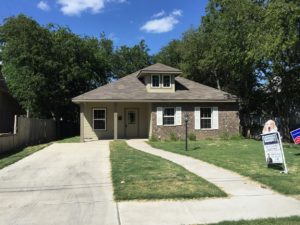 Homeownership is a major factor in creating neighborhood stability. A growing body of research points out that homeownership has the potential to positively impact educational goals.
Homeownership is a major factor in creating neighborhood stability. A growing body of research points out that homeownership has the potential to positively impact educational goals.
“Affordable and sustainable forms of homeownership can also help families achieve long-term stability. Research on the connection between homeownership and children’s education has found that homeowners tend to move less frequently than renters and that this may account for part of the difference in educational outcomes between children of homeowners and children of renters” (Holupka, C. Scott and Sandra J. Newman. 2010).
Waco Community Development was created with the lofty and ever galvanizing mission to inspire and cultivate healthy neighborhoods. In 2001, we joined the ranks of housing entities like Waco Habitat for Humanity and NeighborWorks who strived to create a culture of homeownership. For us, working within a geographically defined area proved to be a successful model. Today, the homeownership rate in Census Tract 12 (North Waco area) is 42%, an increase of approximately 7 percentage points from the 2009 sample data (Census 2014). We have seen vested homeowners become PTA officers, volunteers and mentors for students at West Avenue. One such Waco Community Development homeowner not only became the PTA Treasurer, but her son was valedictorian of his 5th grade class last May.
The complexity of factors influencing neighborhood development can make it difficult to understand what particular cause created a particular effect. There are schools of thought that believe this to be a negative thing, but I see a positive in the midst of the murkiness: It allows people and organizations to be interdependent when tackling difficult issues within our communities. It doesn’t excuse us from critically evaluating our work or from pursuing excellence; it simply means we have the opportunity to reach out to partners all around us to create even greater positive impact.
West Avenue has learned to lean on and be leaned upon and I think that’s a piece of why it’s experiencing such great success. Former teacher Ms. Goodman said it best, “The school is still a pillar. People know they can go there for anything they need and the partners have become resources for both the community and the school.”
 Alexis Christensen is a Community Organizer at Waco Community Development Corporation (Waco CDC) where she focuses on community building, leadership development and building collaborations.
Alexis Christensen is a Community Organizer at Waco Community Development Corporation (Waco CDC) where she focuses on community building, leadership development and building collaborations.
The Act Locally Waco blog publishes posts with a connection to these aspirations for Waco. If you are interested in writing for the Act Locally Waco Blog, please email [email protected] for more information.
By Alexis Christensen
I’ve long been drawn to understanding how governmental systems work—whether it’s politics, civic engagement or policy. Often we think about law or policies from an impersonal perspective, but in reality, they can be very personal.
In Part One of this series we learned about the devastating effects payday and auto title lending has on our residents and our city. Because of the negative outcomes produced by these loans, many believe now is the time for action. In the world of community development, the grassroots movement becomes effective in creating change when community members who have experienced, dealt with or struggled through the situation voice their personal stories and ideas into the work.
So let us turn to the voices of the community, who have dealt with the negative effects of payday and auto title lending firsthand. For a moment, let us listen to the voices of experience.
Ms. Lewis, tell us your story.
Lewis: I am a single parent of two kids. My son is 17 years old and chronically ill and I have a 19 year old daughter in college. I got into desperate times and needed money due to my financial situation. I have to travel a lot with my son [to visit doctors]. He requires medicines through IV and has frequent doctor visits. Then I found out my daughter had medical issues too. I kept seeing all these ads and signs, so I went and got an auto title loan.
Christensen: How was that visit?
Lewis: Well, when I got the loan they made me feel so comfortable and they were so friendly but come to find out they were wolves in sheep’s clothing. As a single parent, I am stressed. I am trying to keep up with the bills and sometimes it’s hard but I do what I can to manage. When it comes to payday lenders, yes they are so nice and sweet when you first come through the door but…I wish I had never done it because of the outrageous fees they charge with interest and the harassing calls…When my son was in the hospital, they called me just about every day threatening to come and take my car, it was awful.
Unfortunately, Ms. Lewis is not alone in her experiences with payday and auto title lending. Let’s hear from Mr. Thomas, who is a veteran.
Mr. Thomas, tell us your story.
Thomas: I was in school and temporarily unemployed and took out both an auto title loan and a payday loan to catch up on my water and electric bills and pay for school. I actually got a job in the same week I took out the auto title loan, but couldn’t keep up with the loan payments and had my pickup repossessed. The original loan was for $1,000 and the auto title loan was for $4,000. I’ve been charged twice the amount of the original loans.
I’ll be paying these type of loans off forever because of the interest. There is no way to catch up. Me and my wife are currently trying to adopt our nieces and credit issues have come up as an issue [in the adoption process].
Lastly, let’s hear from Ms. Marks.
Marks: A long while ago I got an auto title loan for $500 and ended up paying $2400 on the whole thing. Loan interest rate was about 800%. I belonged to a credit union and explained situation and they bought out the auto title and payday loan.
It was so hard to get a loan anywhere else besides a payday loan place. The stores keep calling and asking about getting another loan. At [a local payday loan store] I got a loan for $150 and I’m on the way right now to pay $51 in fees today to extend it for two weeks and it won’t go toward principal. I have 6 months to pay it in full.
If I could change anything about them, lower the interest rate. They get away with it [high interest rates] because they say they’re not the lender and they can’t do anything about it.
These stories have come from people right here in our community. These brave ones have shared some of their most vulnerable moments with us to help see change happen at the local level. This is why the ordinance to help address the issues payday and auto title lending create is vitally important to our community. The ordinance is one part of the solution; we also need sound alternatives and education to see true systemic change. Find where you fit in this work and help create a flourishing Waco for all of us.
*Some names have been changed to protect the identity of the community members.
 Alexis Christensen is a Community Organizer at Waco Community Development Corporation (Waco CDC).
Alexis Christensen is a Community Organizer at Waco Community Development Corporation (Waco CDC).
(This post is one in a series on race titled “But Some of Us Are Brave.” The series includes posts from a diverse group of writers from our community. It takes a considerable amount of transparency and vulnerability for the contributors to this series to pen these posts and voice their experiences. We appreciate their courage, and we hope their willingness to be brave will spark some authentic community conversation on this sensitive and important topic. We hope you will read these posts thoughtfully and join the conversation by responding honestly and respectfully, and by sharing them with your friends and acquaintances. — ABT )
Dear Fear,
Normally I start a letter by asking how you are, but I don’t much care to ask how you are doing. Instead, I’ll get right to it: you’re really wreaking havoc in our communities and I’d like to see it stopped.
You are a bully. You like to push and prod. You coax us to think the worst about people, exaggerate stereotypes. A drop in the stomach when I see that man, that black man walking toward me. Fear, you urge us on.
Fear, you are not new to this job. No, your tactics were employed long ago to strip people of their identity, their pride, and their dignity. Slavery, Jim Crow, Segregation– I smell your stench in them all.
Your tactics have evolved. Even now, people are paralyzed from speaking or sharing because of you. Their words mangled and strangled because of your tight, tight grip.
Fear, you are not an excuse or cop out. We cannot blame you for the hate and enmity that exists between peoples. But you do cause us to pull away instead of drawing near to each other, which disables us from seeing the Beloved Community realized. We are then blind to the reality and beauty of each individual and the collective.
When we give you power, we allow you to destroy whole groups of people. Fear, you are no friend of mine.
But I know your secret. I know you flee at the first flicker of unity. You shrink back at the sight of common understanding. You groan under the weight of triumphant justice. And so, it’s really clear isn’t it? We can be victorious over you.
I’m saying goodbye. I have no time for you. You’ve ravaged too long the streets of Waco, the hearts of men and women, the dreams of little brown boys and girls.
I am a fool no longer.
I am joining hands with my sisters and brothers to dispel you. It takes more than some of us to be brave, I know that well. We need everyone to be brave so that our communities can be full of beautiful color and song again. We need to be brave so we can build and rebuild bridges long burned down.
Don’t bother looking for me again, fear, because I’ll be too busy walking free, hand in hand with my beloved community, working toward justice, peace and wholeness. And frankly, you’re not invited.
Most sincerely,
Alexis
 Alexis Christensen is a Community Organizer at Waco Community Development Corporation (Waco CDC).
Alexis Christensen is a Community Organizer at Waco Community Development Corporation (Waco CDC).

